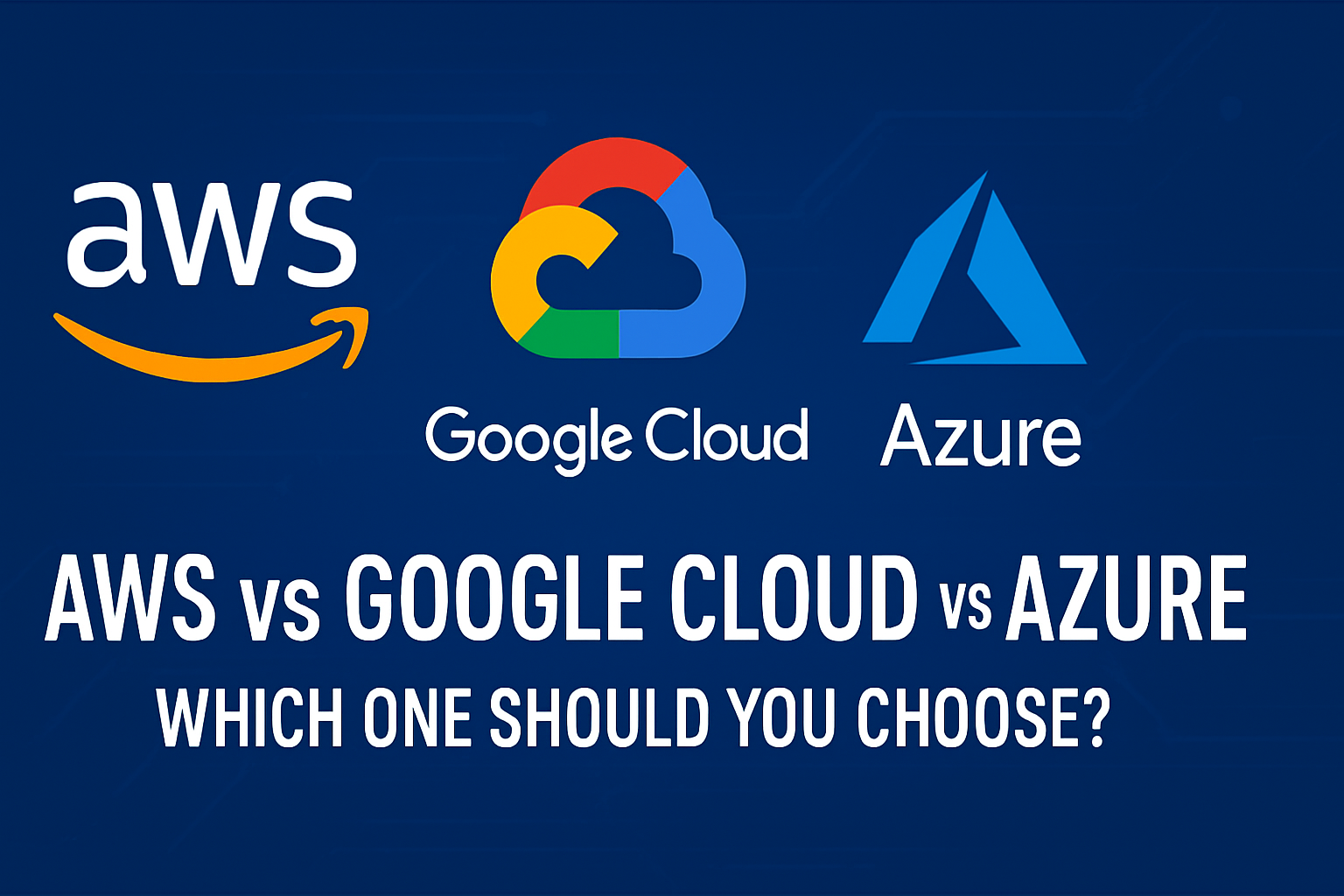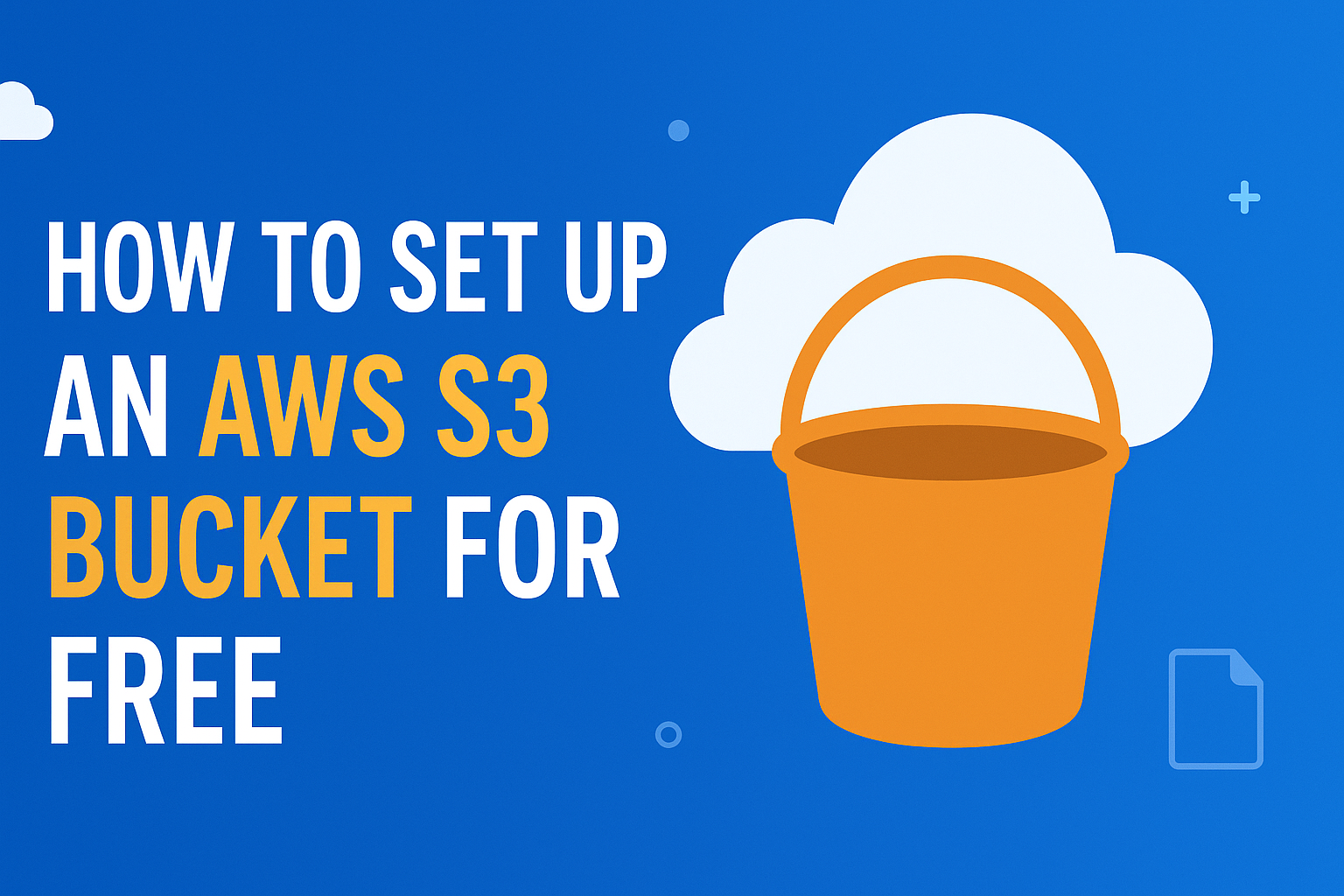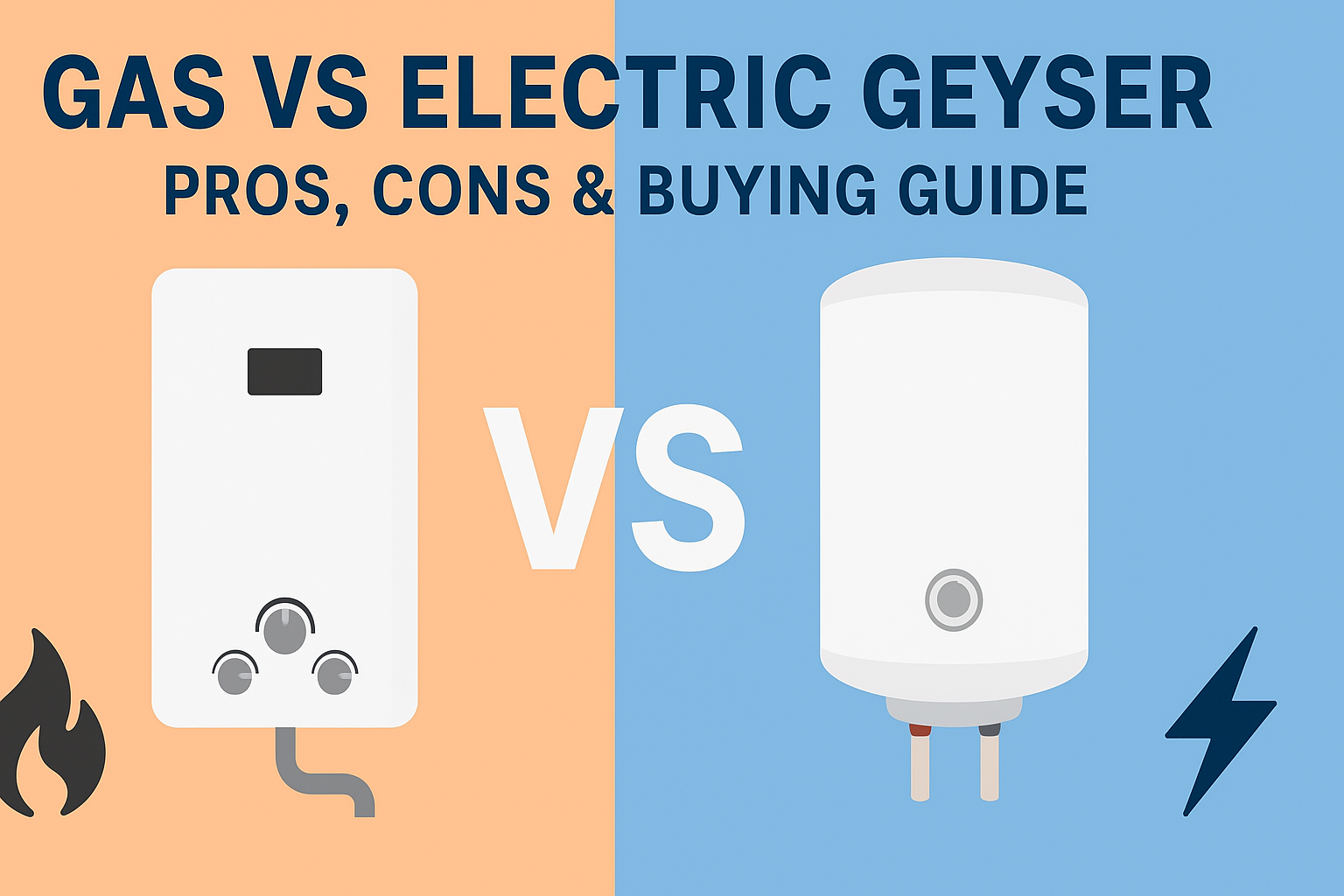Cloud computing has become the backbone of modern businesses, powering everything from websites and apps to AI-driven analytics and enterprise workloads. The three biggest players in the cloud market are Amazon Web Services (AWS), Google Cloud Platform (GCP), and Microsoft Azure.
But if you’re planning to migrate to the cloud or choose a platform for your project, the big question is: AWS vs Google Cloud vs Azure – which one is right for you?
In this guide, we’ll compare these cloud giants on pricing, services, performance, scalability, and ease of use — helping you make an informed decision.
Overview of the Big Three Cloud Providers
Amazon Web Services (AWS)
AWS, launched in 2006, is the largest and most mature cloud platform. With over 200+ services and a massive global infrastructure, it powers millions of startups, enterprises, and government projects.
- Strengths: Market leader, widest service portfolio, global reach.
- Use Cases: Web hosting, data analytics, AI/ML, enterprise solutions.
Google Cloud Platform (GCP)
Google Cloud is known for innovation, AI/ML leadership, and open-source contributions like Kubernetes and TensorFlow. It’s favored by companies that focus on data-driven workloads.
- Strengths: Best-in-class AI tools, competitive pricing, strong Kubernetes ecosystem.
- Use Cases: Big data, AI/ML, containerized workloads, startups.
Microsoft Azure
Azure is a natural choice for businesses that already use Microsoft products like Windows Server, Active Directory, or Office 365. It offers seamless integration with Microsoft’s ecosystem.
- Strengths: Enterprise-friendly, hybrid cloud support, security compliance.
- Use Cases: Enterprises, hybrid cloud, Microsoft-based IT infrastructure.
AWS vs Google Cloud vs Azure: Market Share
As of 2025, AWS continues to hold the largest market share (around 30–32%), followed by Microsoft Azure (around 23–25%) and Google Cloud (around 10–11%).
AWS’s first-mover advantage has given it a head start, but Azure is rapidly catching up due to strong enterprise adoption, while Google Cloud is gaining traction with startups and AI-focused companies.
Service Comparison
1. Compute Services
- AWS: Offers EC2 (Elastic Compute Cloud) instances with unmatched flexibility and scalability.
- GCP: Known for Compute Engine and Google Kubernetes Engine (GKE), excellent for containerized workloads.
- Azure: Virtual Machines with deep Windows integration and Azure Kubernetes Service (AKS).
Winner: AWS for versatility, GCP for Kubernetes, Azure for Windows-based workloads.
2. Storage Services
- AWS: S3 (Simple Storage Service) is the industry standard for object storage.
- GCP: Offers Cloud Storage with competitive pricing and excellent data redundancy.
- Azure: Provides Blob Storage with seamless integration into Microsoft services.
Winner: AWS S3 is the most widely adopted and reliable option.
3. AI & Machine Learning
- AWS: SageMaker for building, training, and deploying ML models.
- GCP: Vertex AI, TensorFlow, and AutoML — industry-leading AI/ML tools.
- Azure: Azure Machine Learning with great enterprise support.
Winner: Google Cloud for AI-first companies.
4. Networking
- AWS: Global infrastructure with multiple availability zones per region.
- GCP: Best in class private fiber network (the same one used by Google Search & YouTube).
- Azure: Solid networking services, but slightly behind AWS in region count.
Winner: AWS for global reach, GCP for speed and private network.
5. Hybrid & Multi-Cloud Support
- AWS: AWS Outposts for hybrid setups.
- GCP: Anthos, one of the most advanced multi-cloud management solutions.
- Azure: Azure Arc, highly compatible with hybrid and on-premises infrastructure.
Winner: Azure for enterprise hybrid needs, GCP for multi-cloud flexibility.
Pricing Comparison
Cloud pricing can be complex, as it depends on compute usage, storage, network traffic, and services. However:
- AWS: Pay-as-you-go model but can be expensive without cost optimization.
- GCP: Generally offers the lowest pricing for compute and sustained use discounts.
- Azure: Competitive pricing, especially for enterprises with Microsoft agreements.
Tip: Always use the cost calculators provided by each platform before making a decision.
Ease of Use
- AWS: Extremely powerful but can feel overwhelming to beginners.
- GCP: Simple, intuitive interface — great for developers and startups.
- Azure: Familiar to IT teams already using Microsoft tools.
Security & Compliance
All three providers offer robust security measures including encryption, IAM (Identity & Access Management), and compliance with standards like ISO, SOC, GDPR, and HIPAA.
- AWS: Industry leader in security and compliance coverage.
- GCP: Strong on data privacy and encryption by default.
- Azure: Preferred for government and enterprise compliance-heavy industries.
When to Choose Each Cloud Platform
✅ Choose AWS if:
- You want the most mature cloud platform with the largest service catalog.
- You need global coverage and scalability.
- You have diverse workloads across industries.
✅ Choose Google Cloud if:
- You are building AI/ML-driven products or rely heavily on big data analytics.
- You use Kubernetes or containerized applications.
- You want cost-effective compute and storage options.
✅ Choose Microsoft Azure if:
- Your company uses Microsoft ecosystem (Windows Server, Office 365).
- You need hybrid cloud or on-premises integration.
- You work in enterprise or government sectors with strict compliance needs.
Final Thoughts
There is no single “best” cloud provider — the right choice depends on your business needs, budget, and workload type.
- AWS is the best all-rounder with the widest service portfolio.
- Google Cloud is perfect for data-centric and AI-first companies.
- Azure is ideal for enterprises looking for seamless Microsoft integration.
If possible, consider a multi-cloud approach to leverage the strengths of each provider and avoid vendor lock-in.






